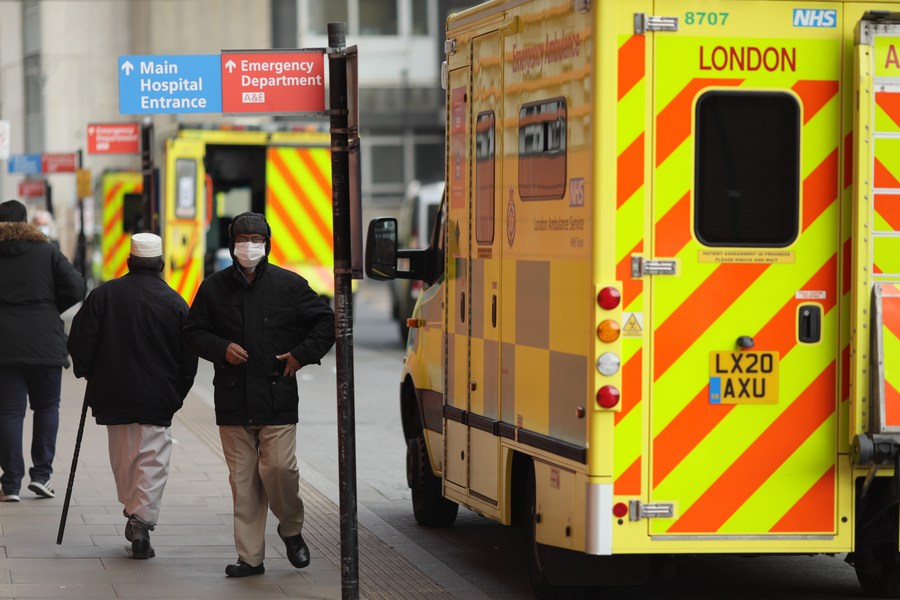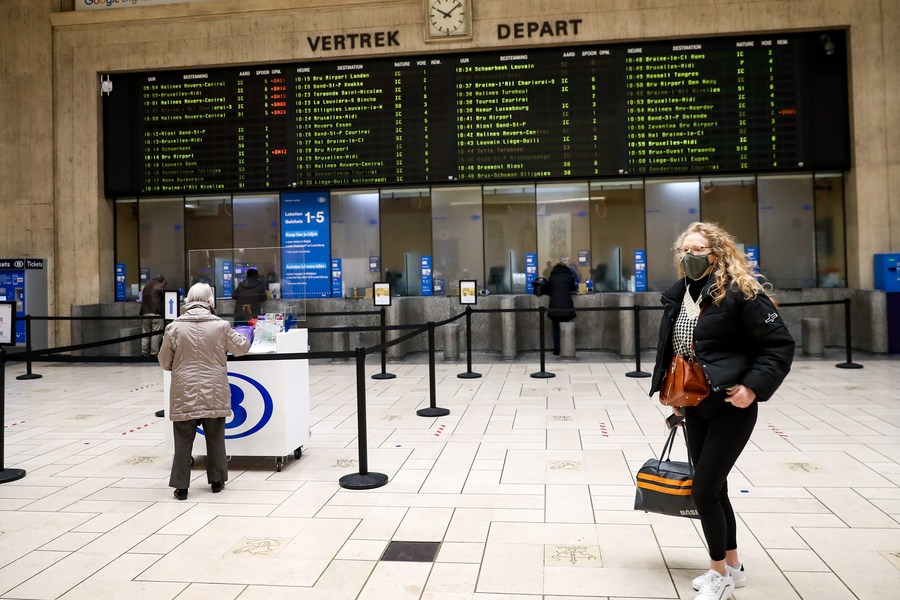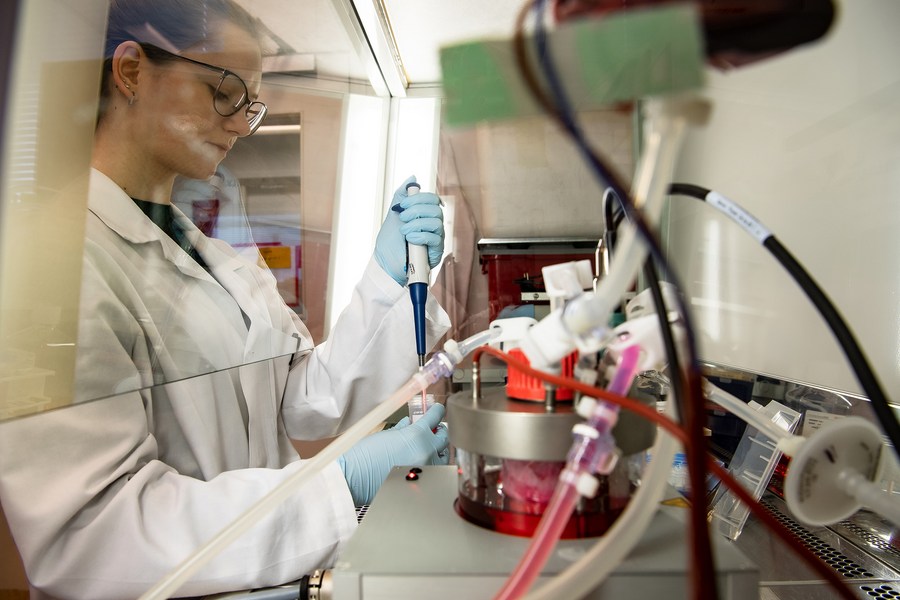
People walk past ambulances at the Royal London Hospital in London, Britain, on April 9, 2021. (Photo by Tim Ireland/Xinhua)
If divided, the community will fail to conquer the virus, and this rings true not only for the continent of Europe, where varied values and ideologies coexist in a multicultural landscape, but also for the wider world.
BRUSSELS, April 10 (Xinhua) -- Europe reached an agonizing milestone as its death toll from the COVID-19 pandemic topped 1 million on Friday.
The World Health Organization (WHO) Regional Office for Europe reported more than 47 million infections, 1,001,313 of them fatal, underlining the seriousness of the health crisis in the region.
Behind these numbers are huge human, economic losses and many heartbreaking moments. What lies ahead is an uphill battle, whose victory hinges on stronger international collaboration with true respect for science.
When a cunning, contagious and previously little-known virus strikes, a well-targeted and science-based approach is crucial for humankind to win a complete victory.

Passengers are seen at the Brussels Central Station in Brussels, Belgium, Jan. 22, 2021. (Xinhua/Zhang Cheng)
European countries have adopted a variety of measures to fight the pandemic, including testing, contact tracing, imposing quarantine measures, travel bans and lockdowns, as well as scrambling to get more vaccines.
However, the exponential spread of the disease, variants with advantageous mutations, and the slower-than-expected vaccine rollout have made the battle more arduous.
In an article published by The Lancet in January, a group of 17 medical experts called for a pan-Europe action plan to defend against the new variants. "Such variants could quickly exacerbate the crisis, long before enough people are vaccinated," they warned.
Europe has made progress in research development. The region has done innovative work such as developing vaccines, providing theoretical contribution to understanding the dynamic of transmission, and laying out the theory behind risk control and assessment, as some European scientists have pointed out. But they also noted that the region needs to do more to develop a common policy to reduce transmission and keep it low.

Undated file photo provided by the University of Eastern Finland shows the nasal spray COVID-19 vaccine produced in a bioreactor being further processed in a sterile laminar flow cabinet. (University of Eastern Finland/Handout via Xinhua)
International health professionals have also called on politicians and the public to jointly commit to a European strategy that builds on vaccination, green zones, as well as testing, tracing and quarantine.
In this age of an unprecedented level of interconnectivity, it rings more true than ever that humankind shares one common future. Cooperation is the only way for the human race to navigate this unprecedented crisis.
WHO Director-General Tedros Adhanom Ghebreyesus has reiterated that "the two essential ingredients" for conquering this virus are national unity and global solidarity.
To cope with the devastating effects of the virus, countries worldwide have carried out cross-border coordination over the year, by sharing disease control and prevention information, providing medical aid to those caught in the crosshairs of the pandemic, and establishing the COVAX mechanism to ensure global equitable access to vaccines.

People wearing face masks chat in the Cinquantenaire Park in Brussels, Belgium, April 8, 2021. (Xinhua/Zheng Huansong)
These efforts, however, are still not enough. The approaches the global community adopts must be truly global in design and implementation.
If divided, the community will fail to conquer the virus, and this rings true not only for the continent of Europe, where varied values and ideologies coexist in a multicultural landscape, but also for the wider world.
Joint international prevention and control can be realized only if the global community is committed to working in solidarity despite differences among countries.
Maximum efforts by the international community to pool resources and global synergy are imperatively necessary, and they represent the only viable way to end the pandemic in Europe or any other places in the world.
With solidarity and cooperation and by giving full play to the power of science, humankind will surely stop the coronavirus from inflicting more deaths and sufferings on countries worldwide. ■




